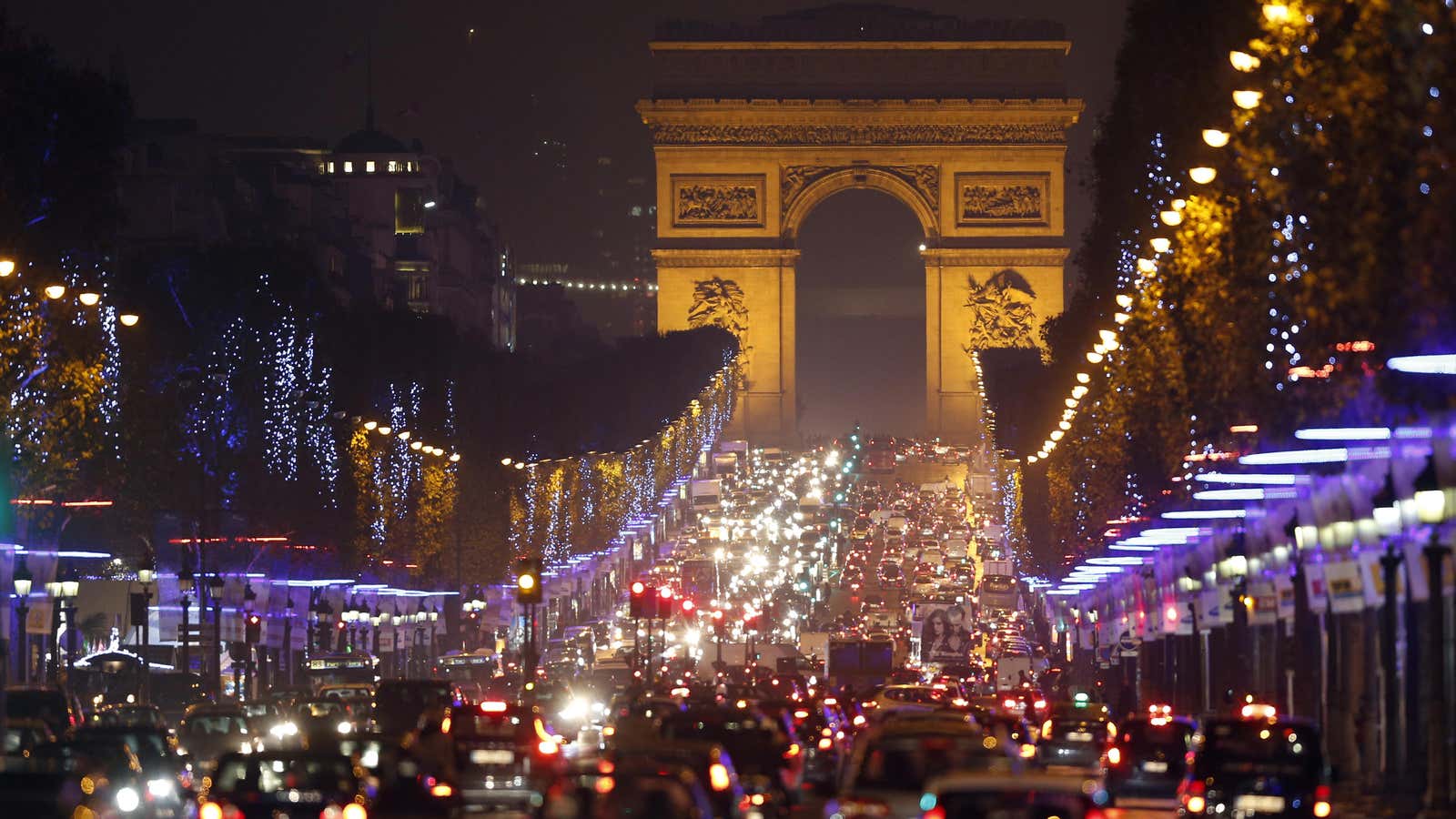In the run-up to the Paris mayoral election in March 2014, politicians of all stripes this holiday season are mired in a existential quarrel: Has the City of Light turned into the Bronx?
“Paris resembles the Bronx,” says former National Police chief Frederic Pechenard, a crucial right-wing vote-bundler in a city that annually hosts 45 million tourists, all of whom would cringe at comparing the Champs Elysees to Arthur Avenue.
In case it’s not clear, the comparison to the Bronx is not meant to be flattering, but rather to tap into fears about rampant crime and decline. (Brooklyn, on the other hand, is a New York borough enjoying a surge of appreciation in the French capital.)
On the other side of the argument: “Paris is not the Bronx,” argues Socialist Party candidate Anne Hidalgo, protégé of lame-duck mayor Bertrand Delanoe, who also says his city “is not the Bronx.”
“The Bronx is lawless,” Rachida Dati, UMP candidate for mayor of the fashionable 7th arrondissement declared on television. “Paris is not the Bronx.”
While Brooklyn’s artisanal hipster vibe and cafe culture have struck a chord with Parisians, Brooklyn in reality is the site of more homicides than the Bronx (with 36% vs. 27% of NYC murders in 2012.) And there are signs that Paris voters are unmoved by the comparison, in any case.
“This argument could turn into a street fight,” warns Liliane Muller, manager of the luxury Paris residential rental firm Guest Apartment Services on the Ile Saint-Louis. “Tourists don’t want to hear such talk from politicians.”
Although New Yorkers have every right to respond to this French kerfuffle with an equally stylish Bronx cheer, the 1.4 million folks who live in the city’s most northern borough should remember that the original name of Paris was Lutetia, which in English can mean “place near a swamp.” That also pretty much sums up the prevailing level of political discourse in France.




